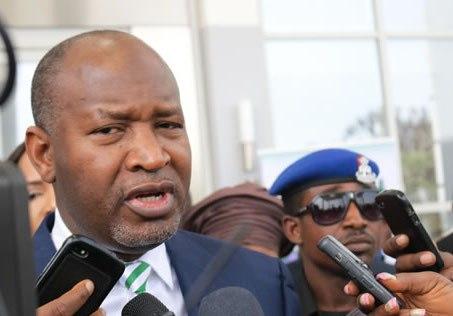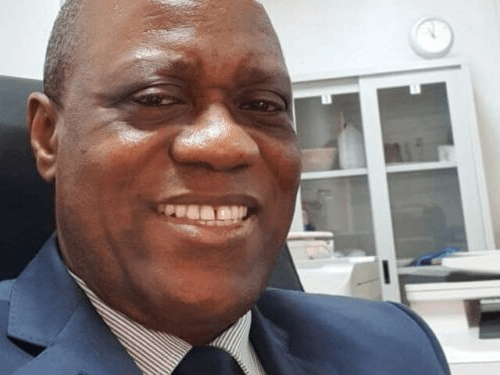The conversation by the federal government to refloat a national carrier in the aviation industry predates the ex-President Mohammadu Buhari government. However, upon assumption of office, Buhari made it a core of his administration’s set goals.
Sen. Hadi Abubakar Sirika would later be appointed the Minister of Aviation and tasked with the responsibility to deliver on the national carrier that would be private sector driven under a public-private partnership arrangement. He went to work. the Infrastructure Concession Regulatory Commission (ICRC) got onboard as a regulator and began regulatory oversight.
After about seven and half years down the rigorous path of working the painstaking process of delivering on the mandate, Ethiopian Airlines merged with the preferred bidder after a public advertisement.
The ICRC approved the Outline Business Case and gave other further approvals. All the milestones achieved towards in the buildup of the national carrier is hosted on the ICRC website (https://ppp.icrc.gov.ng/project/332/nigeria-air) and the information is in the public domain.
Again, after a careful, detailed and ICRC-governed selection process, Ethiopian Airlines (ET) Consortium was selected as the preferred bidder, offering an owner consortium of 3 Nigerian investors MRS, SAHCO, and other institutional investors (46%), FGN owning 5% and ET 49%,
These investors will develop a full business case (FBC) for the ICRC and the Federal Executive Council to approve. Also, the investors will negotiate on the parameters on the parameters to run the airline.
During the last stakeholder’s engagement by the immediate past Minister of Aviation, Hadi Sirika held at Transcorp Hotel, Abuja, Sirika had told the audience that Nigeria Air was at the negotiation stage.
However, when the core investor unveiled a model aircraft that would be used for Nigeran Air, detractors went to town with spurious allegations of secrecy and noncompliance with rules guiding the execution of public-private partnerships.

But in a twist of fate, the ICRC has absolved the former minister of Aviation, Senator Hadi Sirika, and the Ministry of any wrongdoing in the establishment of the national carrier.
ICRC in a detailed report sent to the National Assembly and published by the Punch newspaper on 18th June 2023, the Commission stated clearly that all due processes were followed as prescribed law and relevant approvals got by the Ministry of Aviation.
The report indicated that the commission, which is leading the negotiations for the deal, stated that Ethiopian Airlines has 49 percent; MRS Oil and Gas Limited, 15 percent; SAHCO, 15 percent; Federal Government, five percent while 16 percent had yet to be allotted.
The report stated as follows:
“The ICRC memo also indicated that the proposal was turned down five times by the Federal Executive Council under the Buhari administration before it was eventually approved the sixth time.
The ICRC gave details of the deal, “The national carrier project was initiated by the Ministry of Transportation in 2016 as part of the Aviation Sector Roadmap, which was approved by Mr. President (Muhammadu Buhari). The project was structured to be implemented as a public-private partnership initiative, for which the Infrastructure Concession Regulatory Commission’s regulatory guidance was sought.
“The ICRC provided the required guidance for the implementation of the project in line with the requirements of the ICRC Establishment Act 2005 and the National Policy on PPPS. Following the guidance provided, the following milestones were achieved:
“Constitution of the project steering committee and a project delivery team to guide the implementation of the project. Appointment of a Transaction Adviser – this was done in compliance with the Bureau of Public Procurement Act. Lufthansa Technik was first procured but later changed to Airline Management Group/Traniero after obtaining FEC approval. Development and submission of an Outline Business Case by the Airline Management Group in 2018.
“The structure involved the Federal Government of Nigeria holding five percent equity, while the remaining 95 percent is held by private partners (the foreign partner who is required to have undertaken at Ieast 10 years scheduled international operations) will hold a maximum of 49 percent, while the Nigerian partners hold a minimum of 46 percent.”
The ICRC said its Certificate of Compliance to the OBC confirmed the viability and creditworthiness of the project.
Speaking on the reason why FEC rejected the proposal five times, the ICRC noted, “It is important to note that the OBC was presented to FEC six times before it was approved. This was due to the insistence by FEC that the Federal Government will not contribute any funds to the take-off of the airline as was initially structured. FEC requested that the project should be fully privately financed since it’s viable and bankable,” Ohiani noted.
The ICRC said after 10 weeks of advertisement, only the Ethiopian Airlines consortium submitted a bid and that the project proceeded to the negotiation stage, based on Section 5 (a) of the ICRC establishment Act 2005.
The section states that if after advertisement in accordance with Section 4 of this Act only one contractor or project proponent applied or submits a bid or proposal, or only one contractor or project proponent meets the prequalification requirements, the ministry, agency, corporation, body may undertake direct negotiation without competitive bidding for any contract to be entered into, pursuant to Section 1 of the Act.
On the reason why the documents were yet to be signed, the memo noted, “Several preparatory meetings were held as a prelude to negotiations between the Ministry of Aviation and other government stakeholders before engaging with the Ethiopian Airlines Consortium.
“The commission thereafter requested the implementation of the following before negotiations: the consortium to be a Special Purpose Vehicle; consortium to sign a shareholders’ agreement/updated consortium agreement; the 16 percent unallotted shares to be fully allotted in compliance with CAMA 2022 and transparency principles; and project to adhere fully to the requirements of the request for proposal document.”
The memo indicated that negotiation was thereafter convened to discuss the issues highlighted for the consortium to implement but had to be suspended when it was observed that members of the consortium were working at cross-purposes.
This, it said, was based on the following observations/complaints by members; that the consortium had not agreed on their structure and function; some members were not privy to the documents under consideration; the consortium had not met on their own and had informed the meeting that the TA to the ministry had been the one calling for all their meetings and guiding their interactions.
It continued, “The consortium was thereafter requested to meet and resolve all their issues and present a common position for the purpose of negotiations and executing the PPP agreement with the government. They were unable to resolve their issues and sign the shareholder’s agreement as requested.
“This led to a letter of complaint from SAHCO expressing its concerns and not accepting the shareholders’ agreement as presented. Ethiopian Airlines responded with justification for the issues raised. Efforts to mediate through physical meetings and correspondences towards ensuring the signing of the shareholders’ agreement are ongoing.
“A meeting of the government representatives was thereafter convened at the ICRC to harmonise the position of the government before engaging in any discussion with the private proponent.”
It said the meeting agreed that every member of the consortium would be required to sign the PPP agreement individually as well as the shareholders’ agreement.
It added that the meeting further agreed that the 16 percent unallotted shares must be fully allotted; that the project must have duration to comply with the requirements of the ICRC Establishment Act and that all clauses that allocate financing and regulatory risk to the government must be reviewed and adjusted appropriately.
The ICRC said it wrote a regulatory position to all members of the consortium on April 17, 2023, with a review and highlighted issues that needed to be addressed and corrected before the shareholders’ agreement could be signed.
According to the commission, some of the issues included that the Ministry of Finance Incorporated to hold the five percent Federal Government’s equity and sign the shareholders’ agreement on behalf of the government; full allotment of the 16 percent unallotted shares in the consortium recognition and valuation of the Bilateral Air Services Agreements as part of Federal Government’s contribution to the project; provide clarity on the status of local airlines currently operating regional and international routes, in view of request for total rights over all the existing BASAs; and “the deletion of the clause that waives sovereign immunity by Nigeria.”
The ICRC added that the ministry convened a negotiation meeting on April 18 and 19, 2023, at the ministry “but could not proceed as representative of the Federal Ministry of Justice cited a court order restraining any action on the project.”
The memo indicated that the next step was for all shareholders to sign the shareholders’ agreement and that negotiation should resume and be concluded once the court order was lifted.
On the next step, the ICRC memo added, “Full Business Case to be prepared and submitted to the ICRC for review and issuance of certificate; presentation to the Federal Executive Council for approval; vetting of draft PPP agreement by Ministry of Justice; and contract execution” the report concluded.
Reacting to the report, a trade union leader in the aviation sector said he had followed the process of the Nigeria Air project from the beginning and was convinced that the right things were being done but had faced a lot of sabotage by people who, for reasons known to them, want to ensure that Nigeria Air does not see the light of day.
An aviation expert who craved anonymity because of the intimidation going on in the industry on those who spoke in favour of Nigerian Air said Air Peace and other local airlines are simply afraid of the competence and capacities ET will willing to the Nigerian aviation industry.
Speaking on the recent claim on Arise TV, by the Chairman/CEO of Air Peace, Mr. Allen Oyeama where he stated that “without SACHOL on the deal, Nigeria would have been in trouble. He stated albeit, clandestinely, that ‘when you look at the shareholding agreement on Nigerian Air, without SACHOL, Nigeria would have been in trouble. The leadership of the entire management, the CFO, the CEO, all the management positions will be Ethiopians while the deputies will be Nigerians.” the expert said “This is farther from the truth. Both the submissions from the Federal Ministry of Aviation and the ICRC confirmed that negotiations were still ongoing and there was a firm agreement reached on the structure of the airline. This includes the management composition and other fine details that were required to smoothly run the airline” So where did Oyeama get that from? He queried. The expert also indicated that the ex-Minister, “Sirika was completely not a party to what each shareholder was negotiating and had no powers to decide who gets what. The ICRC was to midwife every step of the way like they’ve done on the project since inception.”
He also noted that Mr. Oyeama also spoke of a certain Fairfax company owned by ET as owning shares in Nigeria Air but the ICRC report and the Ministry of Aviation report to the National Assembly didn’t mention Fairfax as a shareholder. It clearly shows Air Peace and a few domestic operators are distorting facts to whip public sentiments. This distortion also clearly shows Air Peace is just bent on deliberately killing Nigeria Air so he will continue to monopolize the Nigerian aviation industry and maltreat passengers the way he has been doing.
Source: Economicconfidential





















